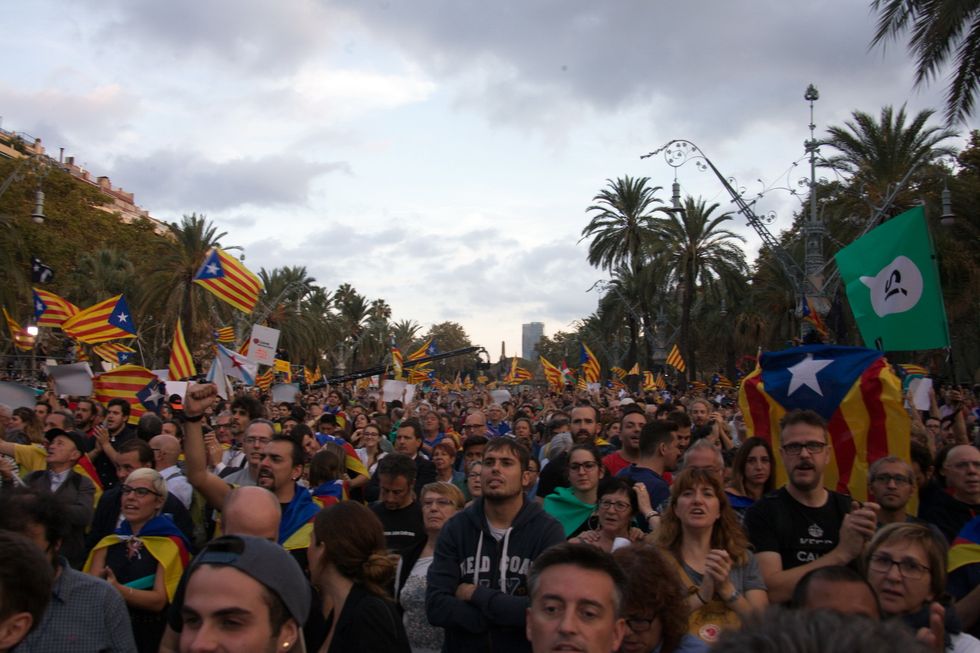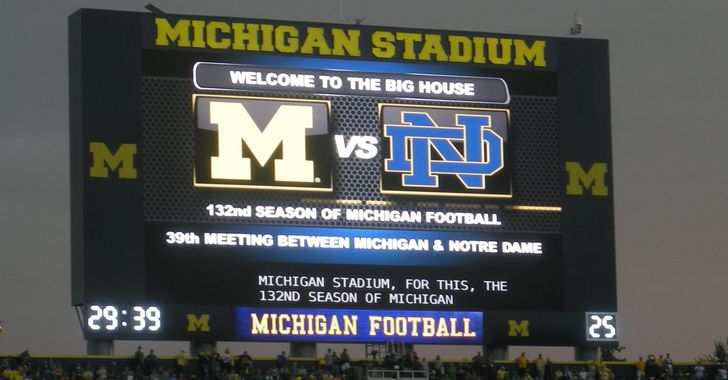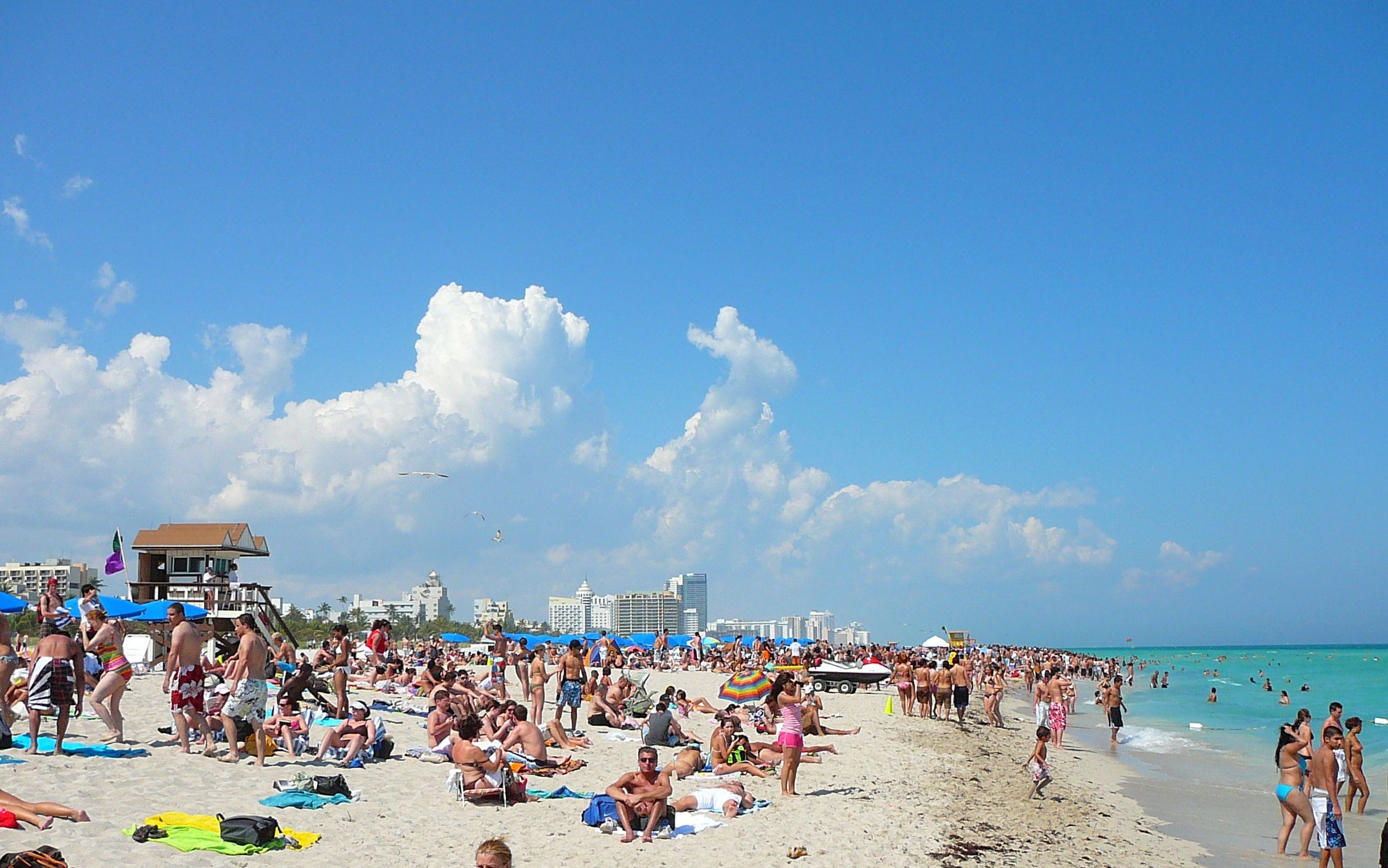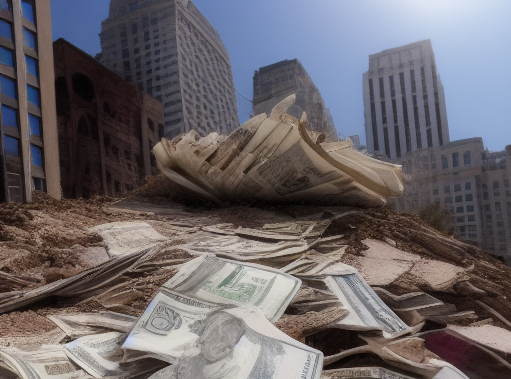I realize the U.S. political scene is absolutely nutty right-now-slash-perpetually. But, taking those nationalistic horse-blinders off to glance at international news is vital to maintaining relativism and urging globalist education. So, let's talk about the setting of the "Cheetah Girls 2." The state of everyone's favorite study abroad spot is heated. Here is what you need to know!
Here are some quick facts:
1. There exists an independence movement for Catalonia, an autonomous community within Spain that consists of Barcelona, Girona, Lleida, and Tarragona.
2. For a long time, Spanish governmental officials have refused to grant Catalonia independence. Most argue that the reasons for refusal are financial, as Barcelona brings in crazy revenue for the country of Spain. Losing Barcelona, by means of separation with Catalonia, is synonymous with losing the nation's breadwinner.
3. According to a banned referendum from two years ago, 90% of citizens in Barcelona voted for separation from Spain. And all hell broke loose. The people protested, videos of police brutality went viral online, and 12 separatist leaders were exiled or arrested on charges of rebellion and sedition. The most infamous arrest was of Carles Puigdemont, the former leader of Catalonia. The aforementioned head of the movement, Catalonia's president, has ordered the people to the streets if the prisoners are found guilty, and has declared plans to "vote again" on independence, a repeat playing years later (sit-com-style).
That said, Spain is no stranger to returning to the polls, having had four elections in the past four years.
Here is a grossly simplified timeline that explains the current tense climate of Barcelonan politics:
From 1150 to 1715, Catalonia was a self-sufficient region of the Iberian Peninsula, aka modern-day Spain and Portugal. This place was culturally, legally, and financially independent with its very own language, laws, and customs! Until… political marriages merged Spain and Catalonia into one of the time's most powerful conglomerates.
In the 1920s, while the roots of a Catalonian independence movement took hold in the grounding of 20th century Europe, a sudden influx of dictators emerge (e.g. Stalin in the Soviet Union, Hitler in Germany, Mussolini in Italy, and, of course, Franco in Spain).
Desiring total unity across the country, General Franco set out to destroy Catalan separatism, killing thousands of Catalonian loyalists, forcing people into exile, and forbidding the teaching of Catalan to children.
In 1977, when Franco passed away and democracy returned to the nation, the Catalonian region was granted a degree of autonomy by the new government.
In 2010, a Spanish economic crisis pulls up taxes for Barcelona, given the comparative wealth of the city's tourism industry. The new monetary strain makes the call for independence deafening, louder and louder until we reach today!
Here is my take:
I have been living in Spain for a month and constantly hear updates on local demonstrations (peaceful and otherwise). However, the general consensus of opinion is wholly mixed. Thus, I set out to interview residents of Barcelona to gauge what the people actually want.
"I don't think anything will change. I don't care, too. But I am afraid of the newest unrest in Catalonia. For the next weeks, I have fear as we wait to hear the verdicts of the trials of separatist organizers." Says Raquel Biedma Comes, a citizen who identifies as neutral (but leaning away from separatism). This source also told me that the Catalonian flags, yellow ribbons, and separatist posters are pinned up high enough on the sides of buildings so that these symbols of deviance arent ripped down by those who wish to stay within Spain.
One separatist with whom I talked during a demonstration takes pride in Catalonia's rich history, which she calls "her biggest motivation."
Another young protester finds his incentive to speak out in "the money," which is tethering the region to Madrid (Spain's capital). He has a point. Catalonia is one of the wealthiest regions of Spain — accounting for almost 20 percent of Spain's GDP. The Spanish government obviously values and desires to keep the profit of the region, so the theory goes that the country holds the region back from true autonomy to keep themselves afloat.
Besides the obvious financial frustration, it is about identity: what is your true nationality? Why? With what values, customs, foods, and languages were you raised? If you don't find yourself in your own country, what should you do?
The folks here have a lot of deep-seated opinions about what ought to be done — and most are not afraid to speak out about it. It seems like America isn't so alone in the turmoil, after all.









 Photo by
Photo by 









































